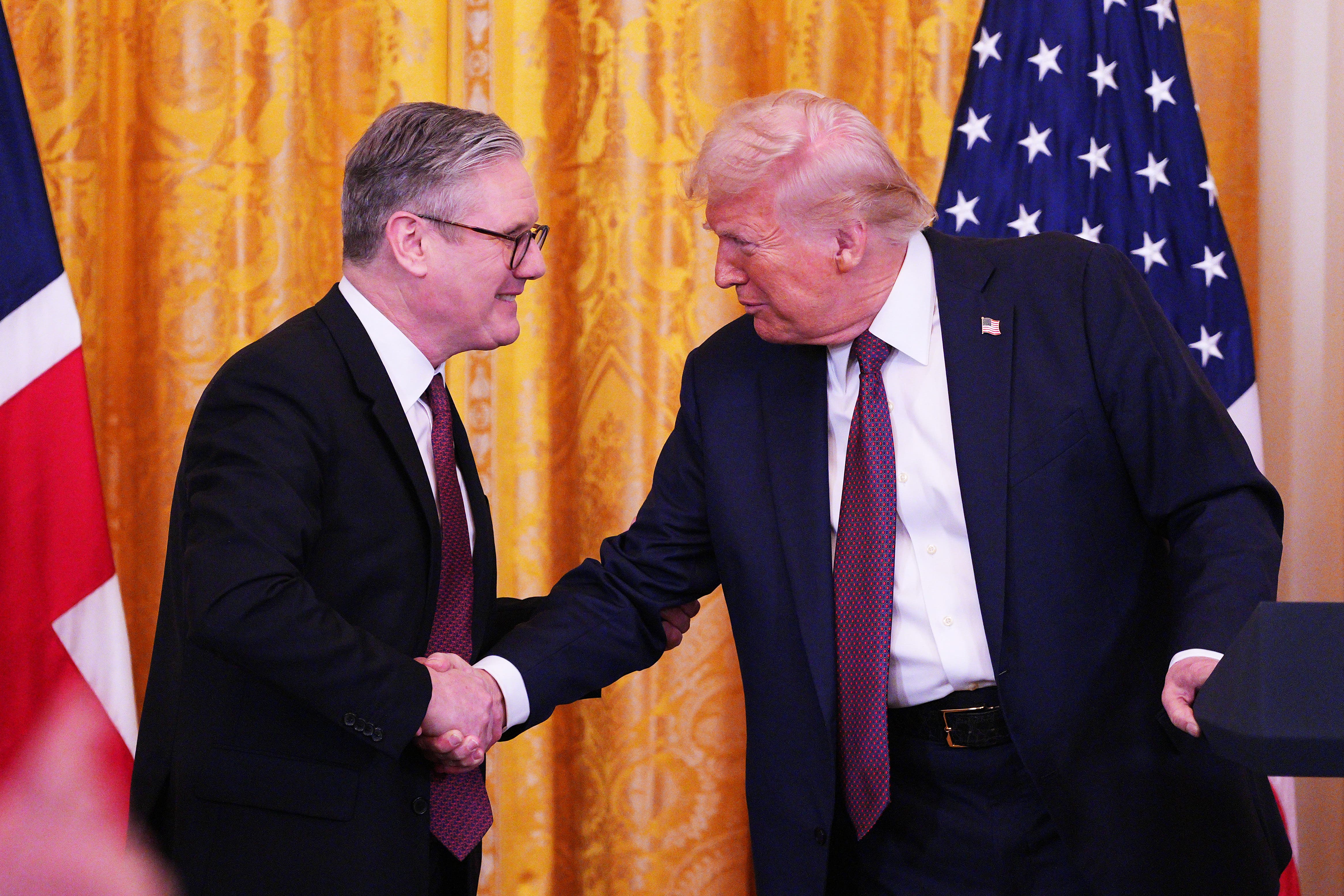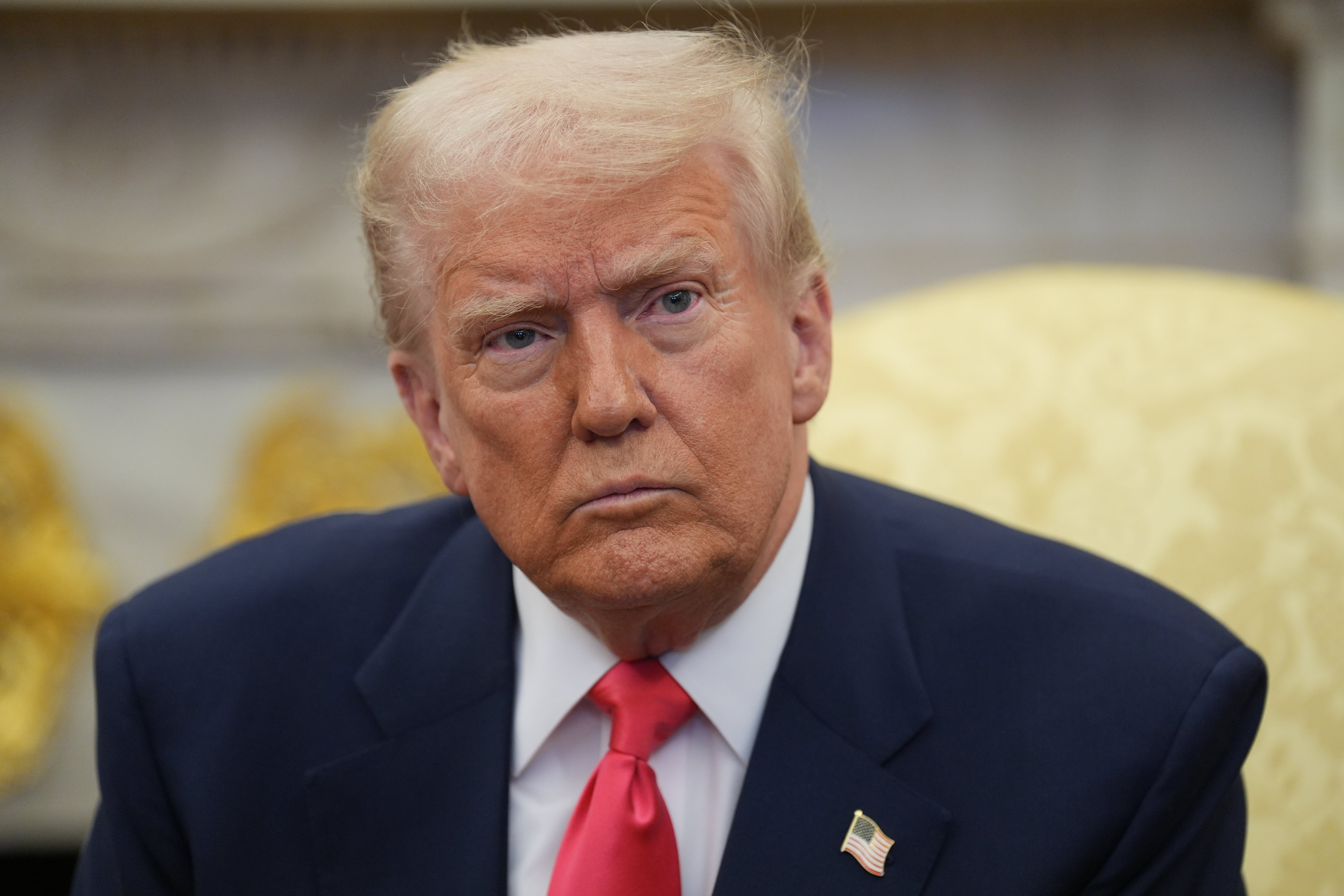Sir Keir Starmer has struck a historic trade agreement with the US that will slash Donald Trump’s tariffs, in what the President hailed as a “great deal for both countries”.
The UK has become the first country to reach such an agreement since Mr Trump’s swingeing ‘Liberation Day’ tariffs threw the global economy into turmoil last month.
The prime minister hailed a “fantastic, historic day” as he said the move would “boost British businesses and save thousands of British jobs” and deliver on his promises to protect car makers and save the UK’s steel industry.
The deal will see US tariffs on cars immediately slashed from 27.5 to 10 per cent, while levies on steel and aluminium will be reduced to zero. However, a general 10 per cent tariff will remain.

The move will apply to a quota of 100,000 UK cars, almost the total number that the UK exported last year.
In response, Britain will scrap its tariff on ethanol – which is used to produce beer – coming into the UK from the US.
The Americans also said the move would “exponentially” increase the amount of US beef coming into the UK.
But No 10 said there would be “no weakening of UK food standards on imports” amid fears over US hormone-feed beef and chlorinated chicken.
The deal will be seen as a coup for the prime minister, who has resisted calls to retaliate against the US and instead ploughed a diplomatic furrow.
The pound strengthened against the dollar in the wake of the announcement, while the UK’s FTSE 100 saw losses ease back slightly.
But Conservative leader Kemi Badenoch said the UK had been “shafted”, comparing today’s result to the situation before Trump came to power.
She said: “When Labour negotiates, Britain loses.We cut our tariffs — America tripled theirs. Keir Starmer called this “historic”. It’s not historic, we’ve just been shafted!”
The agreement comes just days after another long-anticipated trade deal, this time with India, was unveiled on Tuesday in what could end up being a triple whammy of agreements, with a new relationship with the EU expected to be announced at a summit in London on May 19.
They will be a boost to the Labour leader in the wake of disastrous local election results last week that have led to calls for major policy changes from senior Labour figures, including the reversal of controversial winter fuel payment cuts for millions of pensioners.

Before the details of the deal became public, Washington DC sources urged caution about its extent. One source, who provides advice to the administration, told The Independent: “This is not a full FTA [free trade agreement] or anywhere near it. To describe it as such would be a gross exaggeration. It is a mini deal that covers some sectoral issues.
“So it will mean that the UK will make concessions like giving up the digital services tax and will avoid tariffs in sectors like automobiles, aluminium and steel.”
The source added that to an extent it was “a face saving exercise” for President Trump who “almost had his Liz Truss moment with the bond markets” only avoided because of his last minute decision to suspend his liberation day tariffs at the behest of his Treasury secretary Scott Bessent.
Mr Trump did not have the authority to do a full free trade deal, without permission from Congress, the source added.
It will still be seen as a win for Sir Keir, who has succeeded where a string of previous prime ministers – Theresa May, Boris Johnson, Liz Truss and Rishi Sunak – have failed in delivering a trade deal with the US.
Earlier this week, Sir Keir struck Britain’s biggest post-Brexit trade deal in a “landmark” agreement with India that will boost trade with the country by £25.5bn.
The prime minister said the agreement, which focuses on whisky, gin, cars and cosmetics, would boost the economy by billions of pounds and cut prices for consumers.



